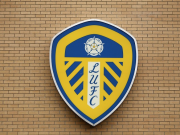Despite the negotiations to sign Adrien Rabiot from Juventus, it has always been made clear that Manchester United hadn’t given up on Frenkie de Jong.
The Barcelona player has been the priority for Erik ten Hag ever since the Dutchman was appointed as the Red Devils’ manager, but problems in house at the Camp Nou have made a deal difficult.
The La Liga side have been trying to force him out, making it clear he can only stay if he agrees to a huge pay cut, which he doesn’t want to do.
That’s why Barcelona have been negotiating with Manchester United and Chelsea regarding a possible transfer, with the latter capable of offering the midfielder Champions League football, seemingly giving them an advantage on the Old Trafford side.
However, the Red Devils aren’t ready to give up yet as ‘De Jong’s situation at Barça is beginning to be almost unsustainable’, according to Sport.
They know his entourage ‘are talking to United and Chelsea’, with the belief that the bad start to Ten Hag’s time in charge of the Premier League club could cause the Old Trafford side to ‘go all out in these last days of the transfer market’.
In fact, ‘Manchester United are going to resume their offensive this week’, even if ‘De Jong’s entourage points to the following week or even the closing of the market’ as the decisive time ‘to solve this issue’.
As things stand, the Netherlands international ‘is more outside than inside’ at Barcelona and is ‘very, very upset with the sports area of the club as he understands that they are pressuring him intensely’.
Over at Manchester United, they are ‘very convinced that they will end up winning the bid because their financial offer will be irresistible for all parties’.
Regarding De Jong’s side of things, his entourage ‘would no longer welcome a millionaire transfer at his expense, but if there is an operation, he must be the main beneficiary’.
























